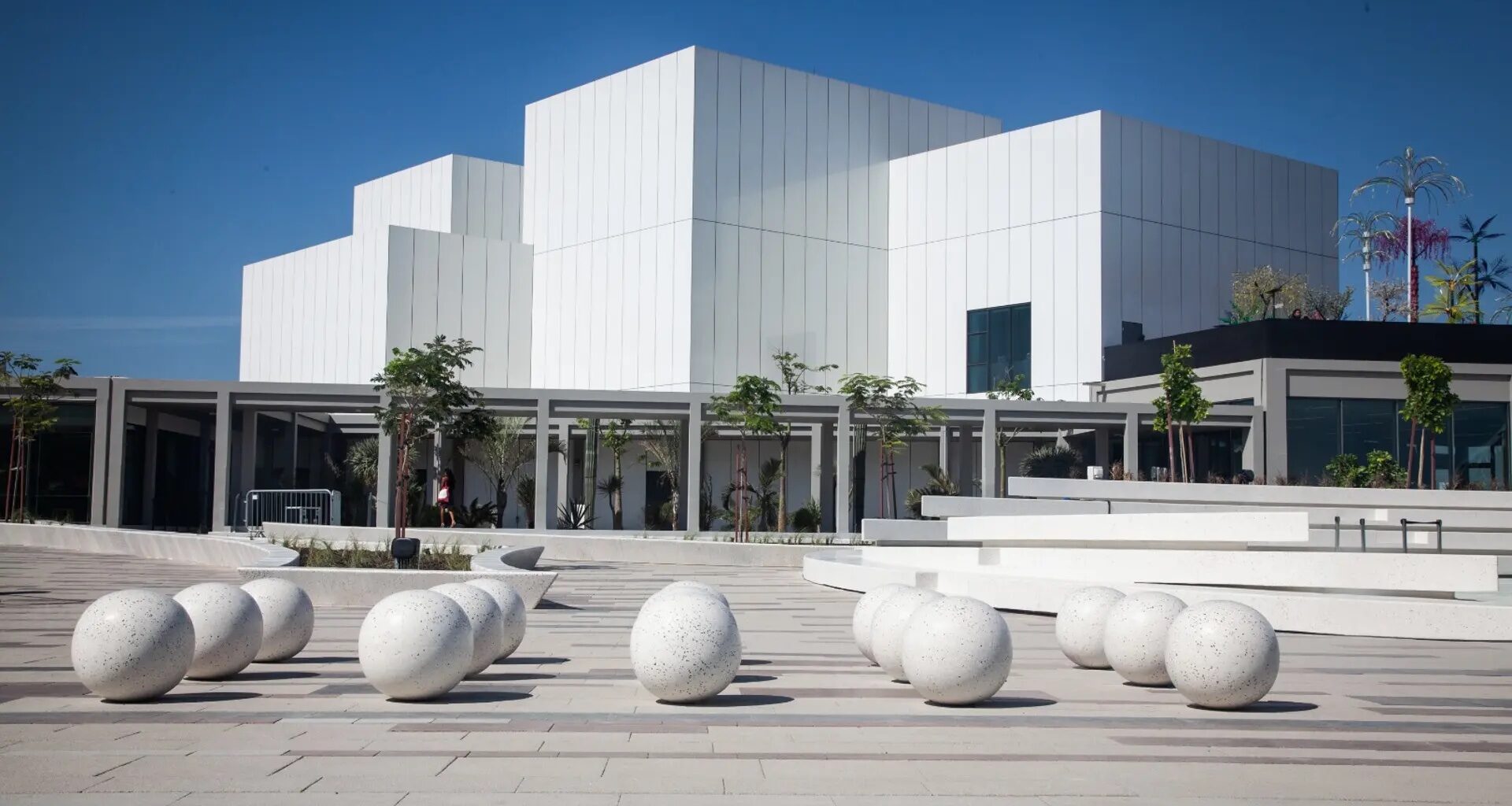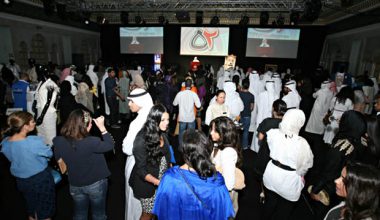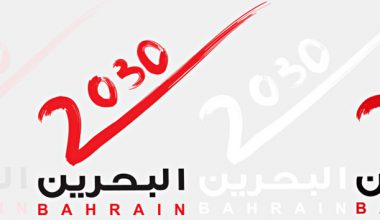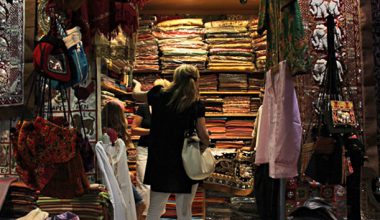Jameel Library, situated at the heart of the Jameel Arts Centre in Dubai, serves as a vibrant contemporary arts research center with a strong emphasis on exploring the cultural histories of the Gulf and its neighboring regions. Its multifaceted collection, spanning multiple languages, facilitates the accessibility of knowledge in arts and culture, encompassing exhibition histories, pedagogy, contemporary discourse, and artists' monographs. The library's extensive resources, including the Special and Ephemera Collection and Artist Files, reflect its commitment to preserving cultural legacies. Through a dynamic range of public programs, reading groups, and commissions, Jameel Library actively engages with students, artists, researchers, and the curious, fostering a thriving hub for arts and culture enthusiasts. As it continues to grow, Jameel Library plays a pivotal role in exploring its impact on cultural production in the region, making it an essential resource for understanding and shaping the artistic landscape.
Azim Al Ghussein serves as the Library and Research Manager at the Jameel Arts Centre in Dubai. With a fervent dedication to the exploration of the Gulf's rich cultural histories, Azim plays a key role in curating the Jameel Library's extensive and diverse multimedia collection. His commitment to region-specific investigations ensures that the library stands as an open contemporary arts research center, offering a comprehensive resource for scholars, artists, and enthusiasts alike. Beyond managing the library's resources, Azim actively engages with diverse audiences through accessible programming, linguistic inclusivity, and outreach efforts, making the Jameel Library a vibrant and inclusive hub for the exploration of the arts in the SWANA region.
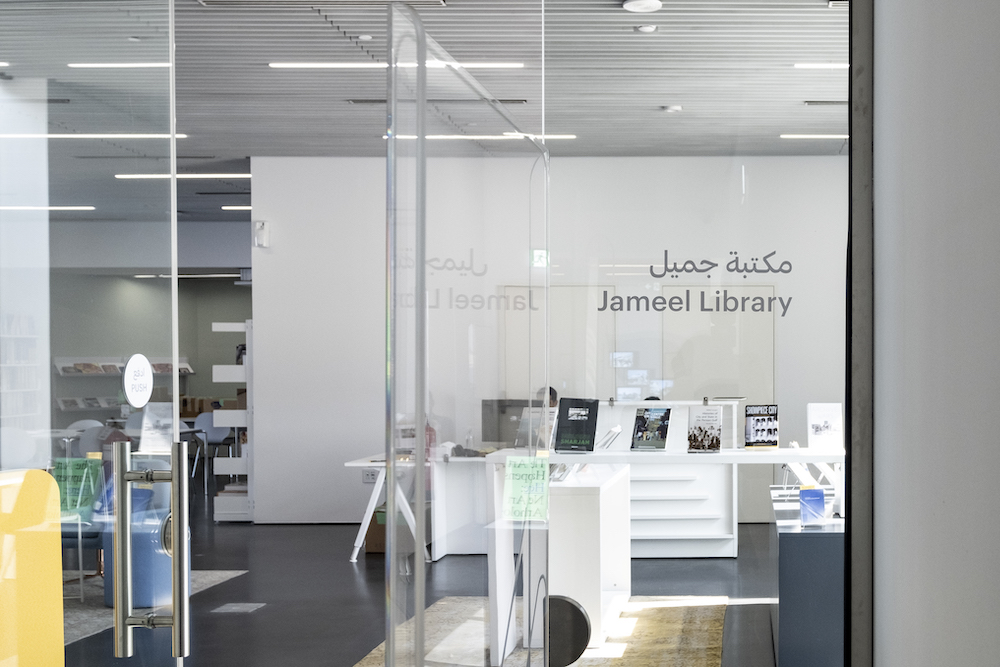
(Marsya Abdulghani): How does the collection appeal to the cultural histories of the Gulf and neighboring regions?
(Azim Al Ghussein): The collection aligns with the rich cultural histories of the Gulf and neighboring regions by concentrating on arts, culture, and history within the SWANA region. While Jameel Library primarily focuses on titles related to these themes, it also incorporates a diverse array of titles that delve into the nuanced facets of practices prevalent in the region. For instance, should a researcher seek information about an artist addressing issues related to sustainable agricultural methods or respectful engagement with the environment, they will discover an extensive selection of titles that not only explore these topics but do so from a distinctly regional perspective. Despite its diversity, the collection is distinctly characterized by its commitment to acquiring and providing access to region-specific investigations.
In addition to the main collection, the Special and Ephemera collections at Jameel Library, accessible by appointment, feature a wide selection of independently published, rare, delicate, old and alternatively formatted items. The majority of these items are sourced from the region and often hard to find as they are not conventionally sold or distributed. The ephemera collection in particular features items that are not sold and often discarded. These items document a rich history of events such as fairs, exhibitions, symposia from major cultural institutions in the UAE and abroad.
(M.A.): How does the library ensure that its resources and programs are accessible to a diverse audience, including students, artists, and researchers including online (ie social media)?
(A.A.): Physical access is facilitated by the library being free and open to the public six days a week. Additionally, our library programming is offered at no cost to registered participants. Furthermore, our extensive ebook collection is accessible to registered users globally, transcending geographical constraints.To engage and encourage users, we actively promote our resources through various channels. We curate organized reading lists and casual reading suggestions, prominently featured in library displays and tied to exhibitions. Social media platforms serve as dynamic spaces for outreach, where we regularly share these curated lists and other relevant content. Notably, we recognize the importance of linguistic inclusivity and have experimented with diverse languages, including Malayalam, Arabic, English, and French, in both displays and programming, tailoring our approach to the linguistic preferences of the communities engaged in research.
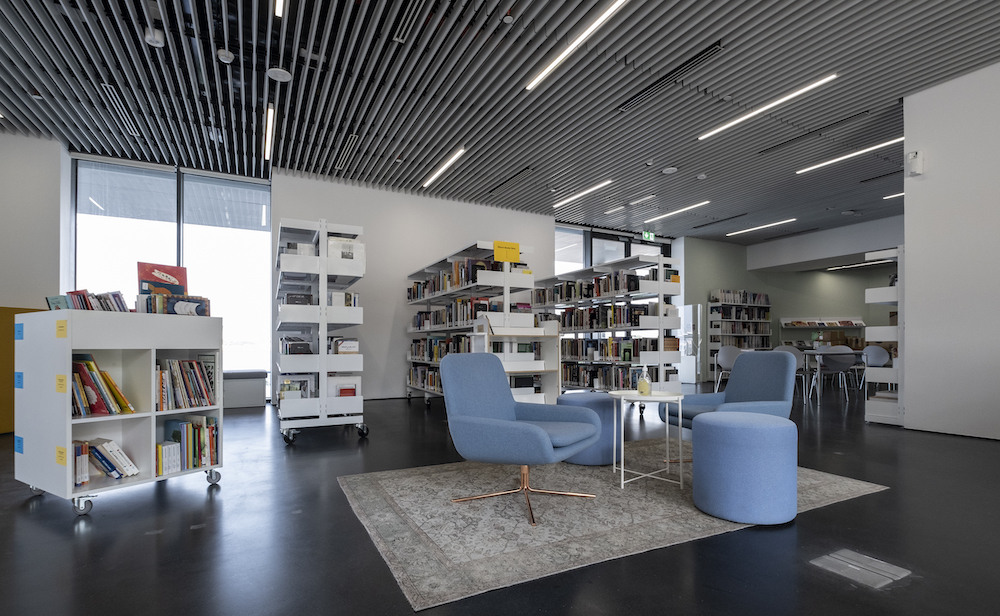
(M.A.): How does the library engage and contribute to the local and regional arts and culture scene?
(A.A.): Jameel Library actively contributes to the local and regional arts and culture scene through a multifaceted approach, exemplified by its commitment to engaging with and supporting regional researchers and professionals working within the arts.
The yearly Jameel Library Commission showcases materials from our collection utilized as reference by a different regional artist each year. This initiative serves to underscore the regional significance of our holdings, providing a tangible connection between the library's resources and the creative endeavors of artists.
Another commission is the Library Circles, a biannual research commission that extends beyond typical library-collected materials. This initiative exposes us to unconventional resources, broadening our perspective on what constitutes valuable research material for local practitioners. Past iterations have featured an array of materials, including menus, stamps, billboard ads, architectural plans, and family photo archives. These diverse and unconventional sources prompt further consideration into what Jameel Library collects and fosters a deeper understanding of the influences shaping local creative practices.
Complementary to these commissions, Jameel Library's regular programming focuses on creating inclusive spaces for discussion and knowledge sharing. Reading groups and writing workshops, framed within thematic series, provide platforms for engaging with specific genres, themes, or approaches. These events contribute to a vibrant cultural discourse, fostering a sense of community and collaboration among individuals interested in the diverse facets of arts and culture in the local and regional context.
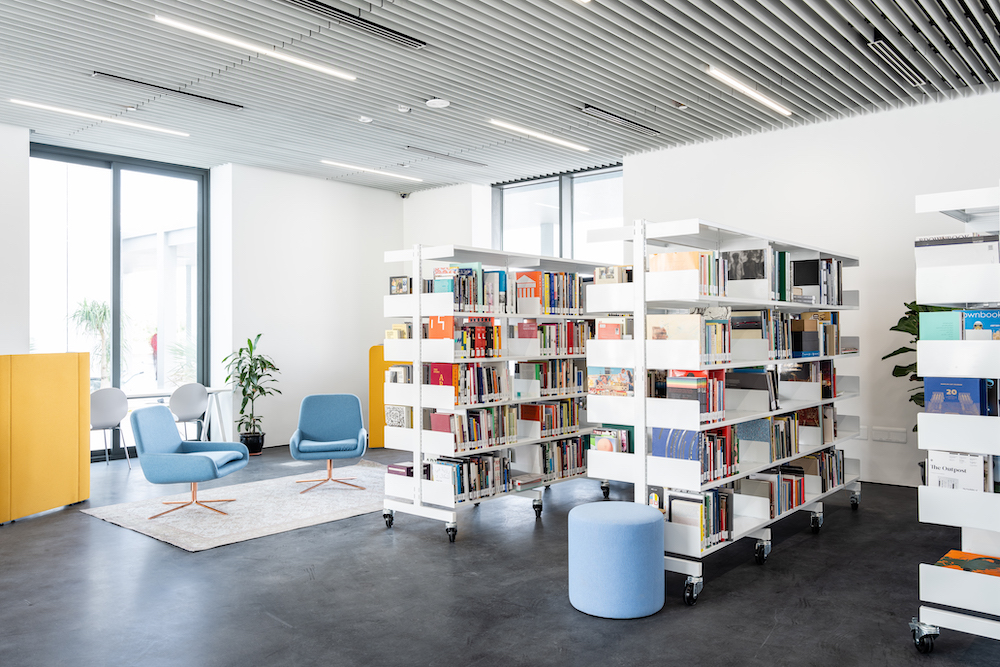
(M.A.): How does the library position itself as a cultural and community hub in the region?
(A.A.): The library is an integral part of the Jameel Arts Centre. As such, Jameel Library is part of the cultural experience offered by the center through a multifaceted approach.
Primarily, Jameel Library functions as a resource for the experts involved in the diverse exhibitions, projects, and programs hosted by the Jameel Arts Centre. It serves as a dynamic space where these professionals can delve into in-depth investigations of topics and themes relevant to their respective projects.
The library also serves as a bridge for audiences who have engaged with the various events at the Jameel Arts Centre. Visitors can seamlessly transition from the immersive experiences offered elsewhere in the center to Jameel Library, where they can seek further answers and delve deeper into the subjects that sparked their curiosity.
Jameel Library houses a comprehensive collection, including artist monographs and resources pertinent to the arts in the SWANA region. This collection caters to a broad spectrum of individuals, from serious researchers to casual learners interested in exploring the rich tapestry of artists, practices, and the history of visual arts in SWANA.
The library, as a space for slow and long-term connection, plays a crucial role in drawing connections between books, artists, geographies, and practices. It becomes a repository where themes, artists, and ideas presented in the region persist long after events and exhibitions conclude. This enduring accessibility enables visitors to revisit and establish connections with the cultural and artistic narratives of the region repeatedly, fostering a continuous engagement with the rich cultural heritage housed within the library.

